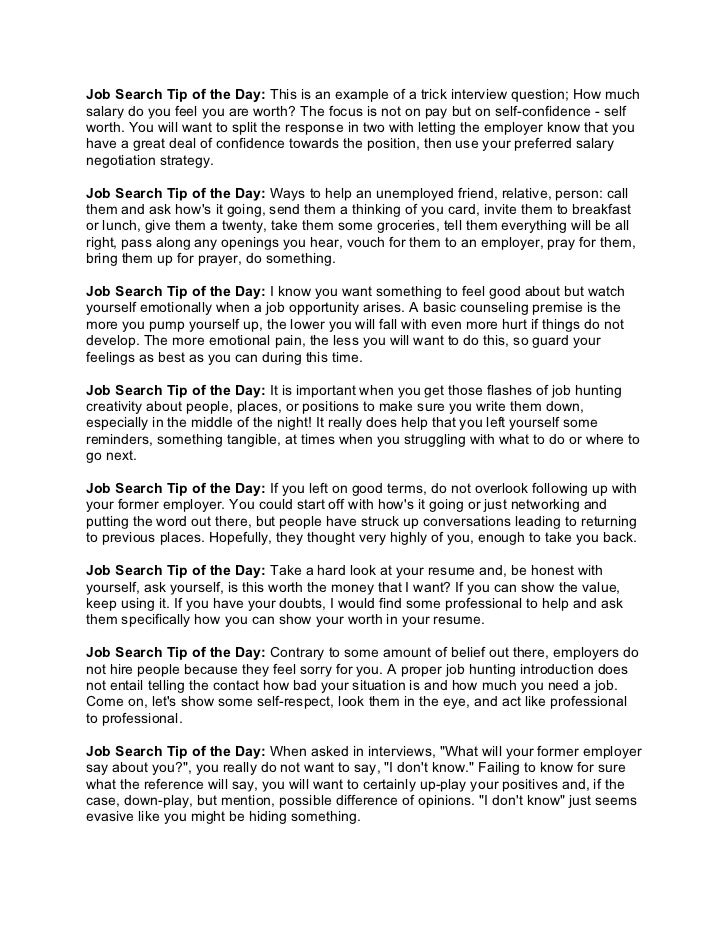It is a favorite question of people who prefer to ask tired traditional. What they say must be the truth or the company can be subject to a lawsuit from the former employee.
Im applying for a new position at ABC Company and want to make sure Im as prepared as possible for the job.
:max_bytes(150000):strip_icc()/what-can-employers-say-about-former-employees-2059608-v5_final-5b58bf0bc9e77c00972b7c3d.png)
What can a former employer say about you. Leverage negative remarks to your advantage. You have to say something. It is for this reason many employers simply stick to only confirming employment.
Remember unless required by law and most states do not require that a former employer disclose information about your prior employment former employers are not required to even respond to a reference request. This was 15 years ago. As a broad concept your former employer can generally say anything he or she would like about you in references as long as it is true.
If your most recent manager loved your work and you find it easy to say My manager would say that Im full of ideas happy to help out a co-worker and a whiz at Excel. The former employer must provide this statement within 10 days of receive such a request along. A former employee also has the right to request a written copy of any information a former employer provides to the former employees prospective employer.
Past employers can say whatever they want about you as long as it is the truth and is fact. They have to be very careful about what they say and how they say it though because the former employee can slam them with a libel case or defamation of character if what they said was out of line or untrue in any way. For instance the former employer can speak of your work ethics attendance habits job skill personality and character.
If your last employer deferred to This isnt a good fit dont be afraid to call and ask for honest details. Laws regarding what former employers are legally allowed to disclose about employees exist only at the state levelthere are no federal laws designed to regulate when and what your previous bosses can share about you. However it must be truthful.
At least up to a point. He can also disclose the reason you are no longer employed with the company. If the employer then tells future potential employers that you were fired for stealing then the employer is potentially liable for defamation because you.
Cease-and-Desist letters are typically issued by the attorney retained to represent you to the senior management of the company where the negative reference originated alerting the. Legally a former employer can say anything that is factual and accurate. Can you give me a few tips on how I can improve 6.
Lets say for example that your employer falsely accused you of stealing from the business and fired you for it. Therefore the answer to this question depends upon in which state you resided andor worked in at the time of your employment. Here are some of the bright line limits employers should follow.
They can even share the reasons that you lost your job. In most cases employers arent legally prohibited from telling another employer that you were terminated laid off or let go. You may run into the obnoxious and pointless question What would you last manager say about you on a job interview.
He was nice about it and let me know that if I ever needed anything dont hesitate to let him know. Making negative remarks about an employee in the context of a post-employment reference can lead to liability for defamation. I stopped going to a job that I hated and my boss tried to find me.
However if an employer falsely states that you were fired or cites an incorrect reason for termination that is damaging to your reputation then you could sue for defamation. Your previous employer is legally allowed to answer questions from a prospective employer who is considering hiring you. When I finally spoke with him I let him know that I could no longer work for his company due to personal reasons.
What can previous employers say about you. Concern about lawsuits is why many employers will only confirm dates of employment your position and salary. The legal risk of saying negative things about a former employee stems from defamation ie a tort that involves saying something untrue and harmful about a person that harms his or her reputation and causes damage.
With that in mind there are some limitations.
